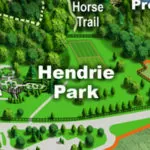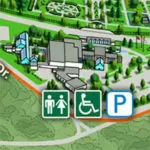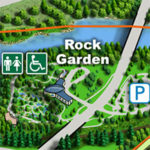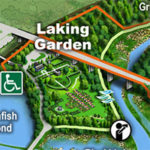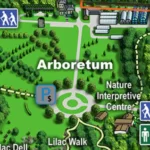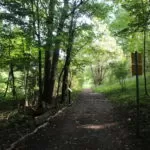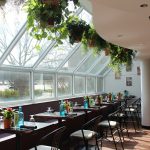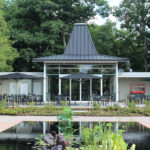| Membership | Price (+HST) |
|---|---|
| Single | $85/year |
| Single Plus | $120/year |
| Family | $130/year |
| Family Plus | $175/year |
| Contributing | $300/year |
| Supporting | $600/year |
| Sustaining | $1,000/year |
| Benefactor's Circle | $2,500/year |
| Director's Circle | $5,000/year |
| President's Circle | $10,000/year |
On the Trails: February 2024
Above-average winter temperatures have brought about unprecedented changes, revealing signs of spring. As February begins, Cootes Paradise Marsh features patchy ice cover, with open water in the river channel and spring-fed areas. A large concentration of waterfowl in these open water zones creates a unique attraction for visitors.
The most dramatic conditions are observed at Marshwalk, accessed through the Arboretum, with the observation platform perched on the edge of the Spencer Creek Special Protection Area. On the nature trails, little to no compressed snow or ice is present, but it’s advisable to be prepared with footwear providing good traction as conditions may change. Ice conditions for skating are nonexistent and are forecasted not to occur for the remainder of the year.
Signs of spring are emerging, with species such as bald eagles and owls establishing breeding territories, and many nesting by the end of February. Mating calls of chickadees and cardinals echo through the ravines. Additionally, on warmer sunny days along Spencer and Grindstone Creeks, winter stoneflies are emerging from their riverbed homes. The unusual behavior of emerging in winter makes them an important food source for hungry winter birds and a sign of the health of these two creeks (stoneflies being sensitive to water pollution). The leafless winter forest provides extensive views through much of the natural areas of RBG, revealing the largest of the Canadian woodpeckers – the Pileated Woodpecker. The RBG sanctuaries are estimated to have 3-6 pairs of Pileated Woodpeckers. The best locations to spot one are on the north shore of Cootes Paradise via the Arboretum, from the George North and Bulls Point Observation Towers, at the Hopkins Wood Special Protection Area. Please stay on the trails, as wildlife has very limited shelter and space during this time of the year, while simultaneously establishing their breeding territories. Another returning addition to the avian fauna is the Common Raven, with 2024 potentially being the first year this species may nest at RBG, with regular sightings starting in 2023.
Skating on Cootes Paradise Marsh at Princess Point was possible for one week in January, with the designated skating area having thin partial ice cover to start February, and the shoreline edge open water. Information on ice thickness status is available on-site at the Princess Point access and RBG’s skating webpage. Please confine skating activities to the Princess Point sheltered bay area, as moving water areas near creeks and at the connection to the harbor have much thinner ice and are expected to remain open for the remainder of the year.
Trail User Notes
Cootes Paradise:
- Arboretum Winter Hours: effective December 11, the Arboretum is open daily 8 a.m. to 6 p.m. for trail users
Hendrie Valley:
- The Grindstone Marsh Boardwalk will have periodic user interruptions as deck sections are replaced. Notifications will be found at the trail entrances.
Escarpment Properties:
- Rock Chapel Parking lot is closed for the season; Reopening again in spring.
For Your Safety
- Please note that all trail use is at your own risk. Most of our trails are hilly and the trail surfaces are natural soil. Consider your footwear as during winter surfaces can be icy or muddy depending on the weather.
- Please stay on the marked trails to avoid trampling regenerating shrubs and trees or buried roots of understory plants such as trilliums.
- The nature trail system is considered closed during extreme weather event notifications from Environment Canada.
- Mountain bikes/fat bikes are not allowed as our trails are not designed to accommodate these activities.
- Please be aware ticks, including those carrying Lyme Disease, are found throughout the Hamilton/Burlington area and are active at temperatures above 0°C. Protect yourself by staying on marked trails. RBG does not accept ticks for testing. For inquiries regarding ticks, please contact the Region of Halton or City of Hamilton Public Health.

Explore RBG’s Trails
RBG’s nature sanctuaries feature more than 27 km of nature trails! Find maps, guided hike schedule, and more.

